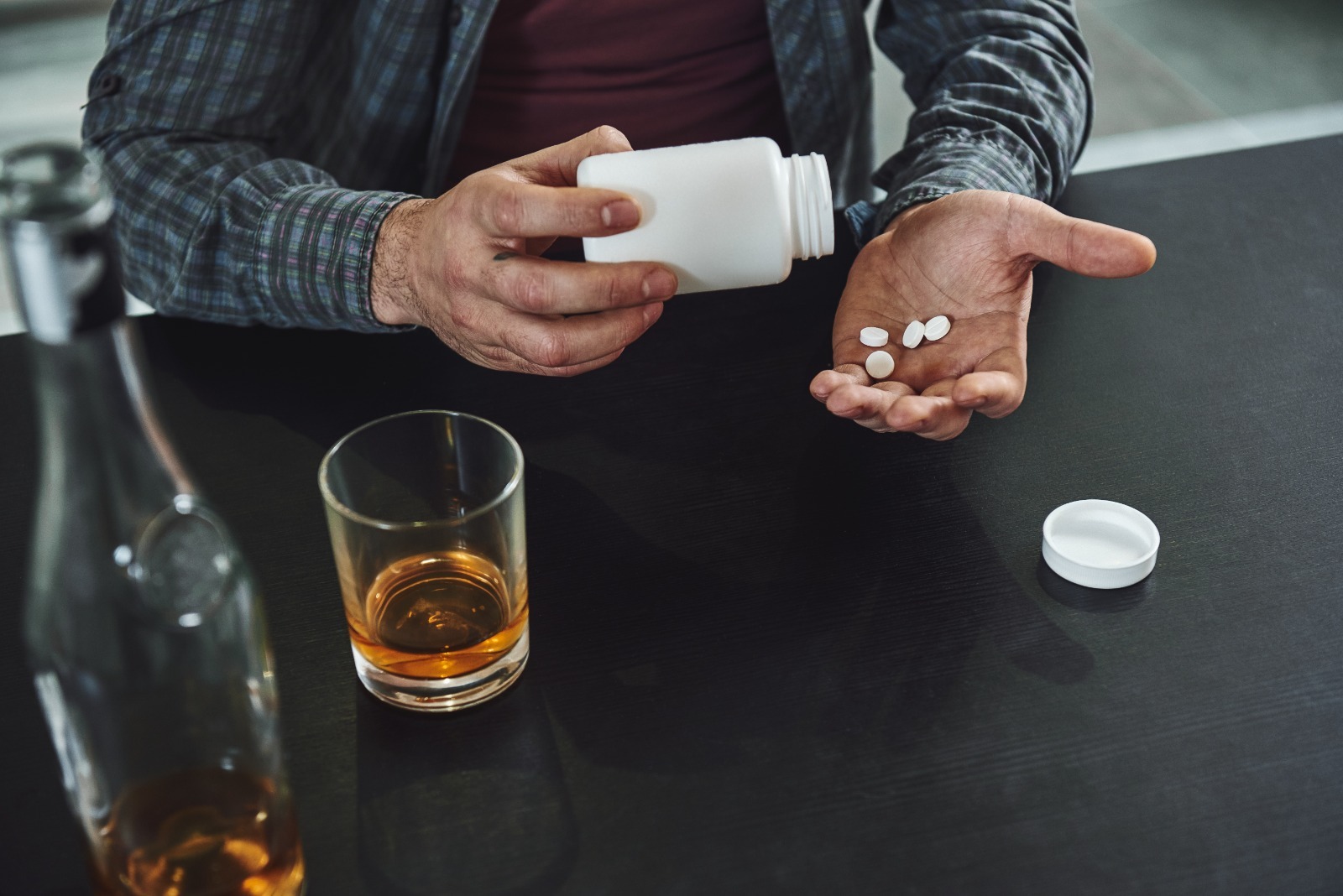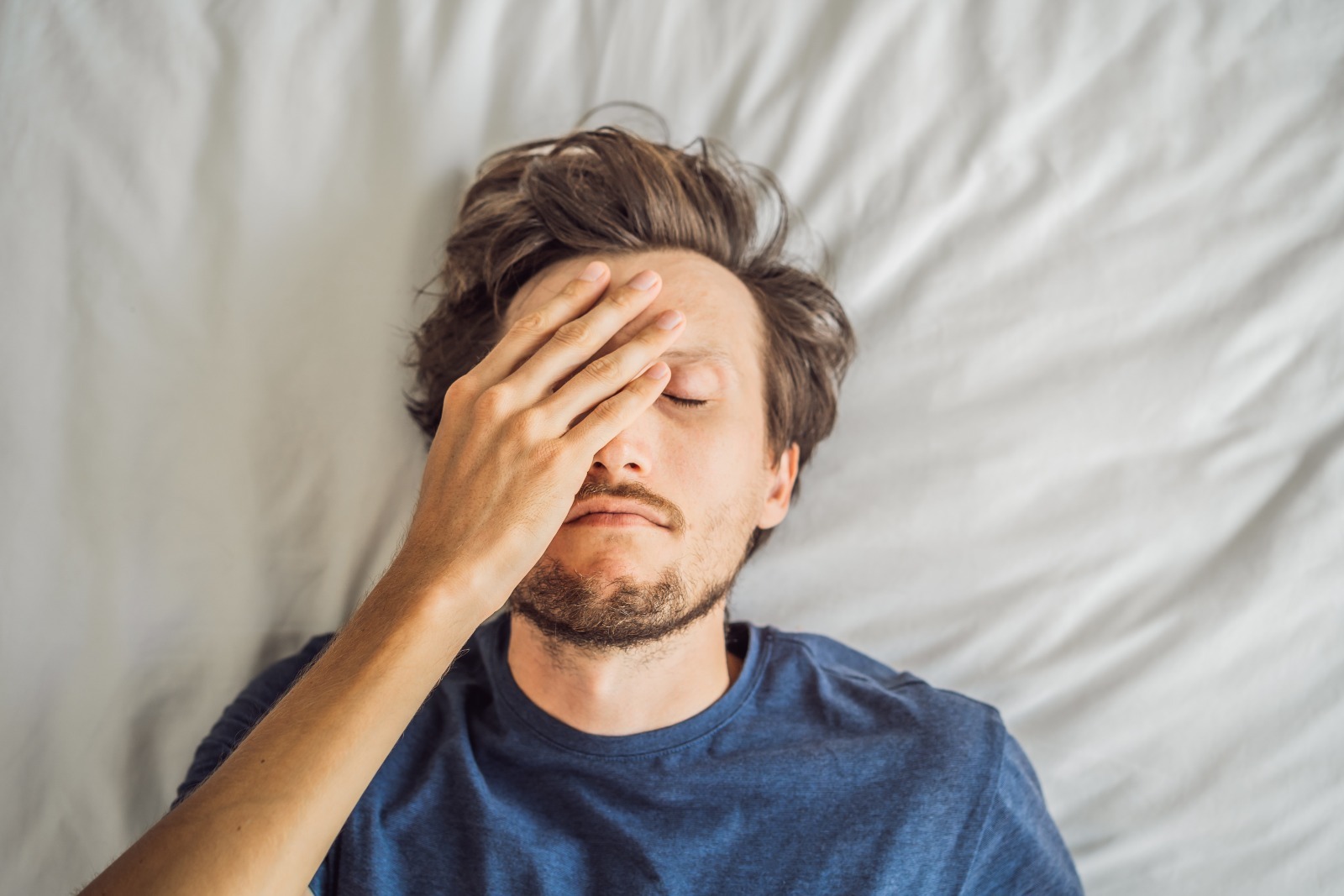Addiction | 6 min read
What Is De-Addiction?
Medically Reviewed By

On March 06, 2023
Written By
On March 6, 2023

What is de-addiction? While this term may refer to a process that you’re familiar with, you may not be familiar with this exact term.
As more is learned about substance use disorder through medical and scientific research, there are more treatment options available for you or a loved one. De-addiction is a form of drug treatment often used alongside traditional means, such as inpatient detoxification and support groups. Similar to rehab, it focuses on helping individuals recover from dependence and recover with professional support.
De-Addiction Defined
A popular term in India for several decades, de-addiction approaches recovery by incorporating holistic, psychiatry, medical, and mental health treatment into your or your loved one’s treatment plan. This approach focuses on overcoming a substance use disorder, regardless of the substance, and getting rid of your dependence on the substance in everyday life. A deaddiction center pairs the individual with a counselor to work with one-on-one. This provider will be dedicated to focusing on their individual treatment needs.
De-Addiction Vs. Rehab
Although similar to one another with the ultimate goal of helping you or your loved one integrate into daily life without substance dependence, de-addiction and rehab have several differences.
Traditionally, substance use rehab uses structured treatment programs, such as inpatient or outpatient. The programs are tailored to the individual’s needs and combine detoxification, group and one-on-one therapy, relapse education, and aftercare.
As an alternative to traditional rehab, de-addiction aims to solve a problem and its underlying forces rather than approaching use disorders as a choice. De-addiction centers on mental health and holistic recovery, including multiple modes of counseling.
These programs may include cognitive behavior therapy, life coaching and skills, group therapy, and family therapy. The holistic approach often compliments traditional rehab and frames additional therapy through activities such as:
- Acupuncture;
- Art therapy;
- Guided meditation;
- Proper nutrition;
- Routine exercise;
- Spiritual therapy; and/or
- Tai chi.
How De-Addiction Can Help
Recovery from substances is a challenging undertaking but one that could, quite literally, save your life. Here are common circumstances where a de-addiction center can help.
Alcohol Dependence
One in five adults between the ages of 20 to 49 died due to excessive alcohol consumption, according to a four-year study in the United States.[1] Its prevalence in everyday life, from social gatherings to media advertisements, can almost downplay alcohol abuse and its effects on you and your loved ones.
Like many substances that can cause use disorders, alcohol physically changes your brain chemistry. The changes are responsible for the compulsive actions related to misuse. Alcohol dependence occurs for several reasons, including environmental and social factors and genetics.
Alcohol Withdrawal Symptoms
Your frequency — how often — and quantity — how much — of alcohol consumption affects the intensity and severity of alcohol withdrawal symptoms (AWS). Mild AWS may begin within six hours of the last drink and progress to more serious and severe depending on your alcohol dependency.
- Alcohol cravings;
- Anxiety;
- Confusion;
- Fever;
- Hallucinations;
- Headache;
- Heart palpitations;
- Insomnia;
- Nausea;
- Seizures;
- Shaky hands;
- Sweating; and/or
- Vomiting.
Long-Term Effects of Alcohol Dependence
No matter how long you or a loved one have had alcohol dependence, it causes numerous chronic diseases and potentially life-threatening medical conditions, including:
- Diabetes complications;
- Digestive issues, like gastritis and stomach ulcers;
- Heart problems, including arrhythmia and high blood pressure;
- Liver damage or disease, including cirrhosis;
- Neurological issues, including dementia and short-term memory loss;
- Osteoporosis and other bone damage, including fractures; and/or
- Vision problems, including involuntary rapid eye movement.
Opiate Dependence
Opiates, and opioids, are common prescription drugs used for anesthesia, cough and/or diarrhea suppression, and pain relief. Yet, they’re highly addictive, with some people developing a dependence within four to eight weeks.[2] Signs of opiate use disorder include:
- Cravings, or a strong desire/urge to use opiates;
- Unfulfilled home, school, or work obligations;
- Using opiates in hazardous situations, such as driving under the influence;
- A strong desire or unsuccessful efforts to reduce opiate use;
- Consuming larger doses or over a longer period than prescribed.
Opiate Withdrawal Symptoms
Opiate withdrawal isn’t life-threatening, but the symptoms can create a strong desire to continue using to avoid them. The symptoms generally appear when you or your loved one suddenly stops taking opiates and include:
- Anxiety
- Chills
- Cramps
- Diarrhea
- Dilated pupils
- Generalized pain
- Insomnia
- Intense opiate cravings
- Nausea
- Restlessness and/or
- Vomiting
Long-Term Effects of Opiate Use
These effects may happen to anyone who uses or uses opiates but are generally more common with long-term use and in higher doses. You or your loved one may experience the following:
- Abdominal distention and/or bloating
- Brain damage caused by hypoxia from respiratory depression
- Constipation
- Depression
- Difficulty sleeping, including insomnia
- Heart problems, including pulmonary embolisms
- Hot and/or cold flashes
- Intense anxiety and agitation
- Liver damage caused by opiate and acetaminophen use
- Muscle cramps and twitches
- Nausea and diarrhea
Benzo Dependence
Benzodiazepines are often prescribed to help people with anxiety, alcohol withdrawal, insomnia, muscle spasms, seizures, and many other medical conditions.[3] Users feel a sedative effect and are effective when taken for a short time period. However, physical and psychological dependence happens when benzos are taken against medical advice and/or in increasing amounts or doses. Risk factors for a benzodiazepine use disorder include:
- Using the medication for more than four weeks
- Using alcohol or barbiturates at the same time
- Having a long-term anxiety disorder or other condition where benzos are used for treatment
- Using high or increasingly high doses
Benzo Withdrawal Symptoms
Most benzo withdrawal symptoms are unpleasant but don’t cause serious medical conditions. If you or a loved one stopped taking short-acting benzodiazepines, symptoms generally begin within a few days, while long-acting forms start within a week. Symptoms can last weeks to months, depending on dosage, length of use, and other factors, and include:
- Anxiety
- Appetite loss
- Cravings or desire to take benzos
- Irritability
- Muscle aches
- Nausea
- Restlessness
- Tiredness and/or trouble sleeping.[4]
Long-Term Effects of Benzo Use
Like so many other substance use disorders, long-term benzo use presents many mental and physical side effects, such as:
- Cognitive dysfunction
- Confusion
- Depression
- Diarrhea
- Dizziness
- Double vision
- Excessive drowsiness
- Impaired coordination
- Increased falling risk, especially in older and elderly adults
- Irritability
- Mood swings
- Nausea
- Slurred speech
- Suicidal ideation
- Tremors
- Vomiting.
Also, early medical research has found a connection between an increased risk of developing Alzheimer’s disease and long-term use of benzodiazepines.[5]
Living Well Alcohol and Drug De-Addiction Treatment Programs
While the treatment process is far from one-size-fits-all, the holistic approach behind a deaddiction center is about finding and maintaining a balance in every part of your or your loved one’s life. Because setbacks during the recovery process affect individuals differently, having a better understanding of root causes and tools to help in reactions is key to relapse and, sometimes, suicide prevention. De-addiction treatment is frequently incorporated into traditional programs, such as inpatient, outpatient, family therapy, and support groups.
Inpatient Medical Detox
The first phase toward recovery, detoxification, should be completed under medical supervision. Many withdrawal symptoms are, at best, highly unpleasant but can be medically dangerous without proper support and treatment. Yet, your experience during inpatient medical detox may vary based on the type of substance, how much, and how long it was used.
The treatment you or your loved one receive during inpatient medical detox is customized and often introduces individual counseling and other therapeutic means during this time.
Outpatient Therapy
Outpatient therapy is an option for individuals who have the motivation to discontinue their substance use disorder but also have everyday responsibilities like family care and work responsibilities. This type of therapy provides treatment sessions along with support groups at varying times during the week. You or your loved one will find outpatient programs vary in format, intensity levels, and additional recovery-focused services.
Family Therapy
This form of therapy lets all family members and loved ones be present during counseling. It can be one-on-one, usually before all family members join the session, to allow the therapist to hear individual insights. Family therapy allows loved ones to share experiences and resulting emotions. As it’s usually held during recovery, family therapy helps relatives understand if they’ve been helpful or otherwise in your or your loved one’s substance use disorder.
For those seeking recovery services in their area, we provide Family Therapy in New York.
Support Groups
You or your loved one may participate in support groups during inpatient or outpatient treatment. These groups let individuals share their experience with substance use disorder and offer emotional guidance throughout recovery. Many people who participate learn skills to assuage cravings, have accountability with others in similar situations and have support during difficult times or situations. Support groups also provide another facet of help for individuals with coinciding mental health issues.
Begin Holistic De-Addiction Treatment At Ascendant
If you or a loved one are ready to overcome a substance use disorder and resolve the core reasons, de-addiction treatment may be a good fit. At Ascendant New York, we blend a holistic approach into many of our treatment programs to help the mind, body, and spirit. To learn more about our programs, contact us today.
Ascendant New York Editorial Guidelines
Here at Ascendant New York, we understand the importance of having access to accurate medical information you can trust, especially when you or a loved one is suffering from addiction. Find out more on our policy.
[1] Esser, PhD, M. B., Leung, PhD, G., Sherk, PhD, A., Bohm, MPH, M. K., Liu, MD, Y., Lu, MS, H., & Naimi, MD, T. S. (2022, November 1). Estimated deaths attributable to excessive alcohol use among us adults. JAMA Network Open. Retrieved from https://jamanetwork.com/journals/jamanetworkopen/fullarticle/2798004?utm_campaign=articlePDF&utm_medium=articlePDFlink&utm_source=articlePDF&utm_content=jamanetworkopen.2022.39485 on 2023, January 25
[2] American Psychiatric Association. (2022, December). Opioid use disorder. Retrieved from https://www.psychiatry.org/patients-families/opioid-use-disorder on 2023, January 25
[3] Semel Institute for Neuroscience and Human Behavior. (n.d.). Benzodiazepine Addiction. Retrieved from https://www.semel.ucla.edu/dual-diagnosis-program/Conditions_Treated/Benzodiazepine_Addictions on 2023, January 25
[4] Government of Western Australia Department of Health. (n.d.). Benzodiazepine withdrawal. Retrieved from https://www.healthywa.wa.gov.au/Articles/A_E/Benzodiazepine-withdrawal on 2023, January 25
[5] Billioti de Gage S;Moride Y;Ducruet T;Kurth T;Verdoux H;Tournier M;Pariente A;Bégaud B; (2014, September 9). Benzodiazepine use and risk of alzheimer’s disease: Case-control study. Retrieved from https://pubmed.ncbi.nlm.nih.gov/25208536/ on 2023, January 25





